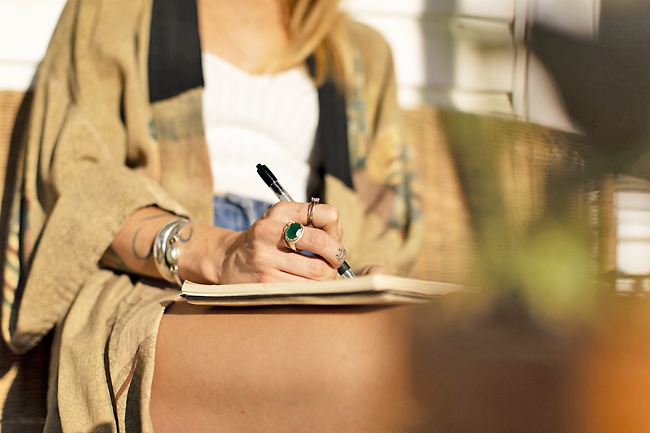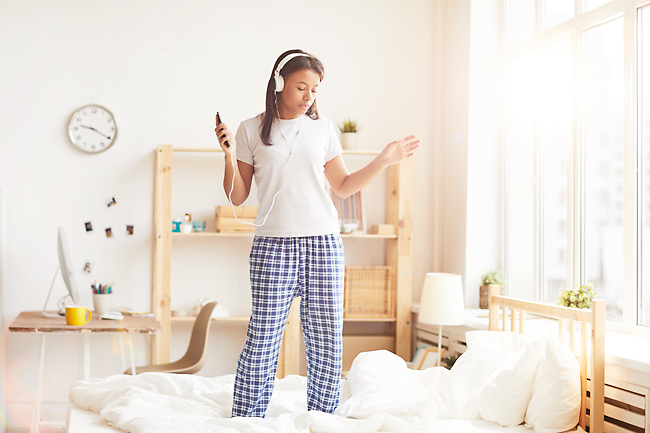Aviva Loeb
THE WASHINGTON POST – We’ve all been living through a global pandemic for two years. Add other crises or the stresses of life on top, and many people are nearing a breaking point.
We asked Washington Post readers how they take care of themselves when they feel unable to bounce back. More than 200 wrote in, ranging in age from 14 to 85, from across the United States (US) and as far away as South Korea. Their responses paint a portrait of resilience and gave me a much-needed dose of hope.
FEEL YOUR FEELINGS
“I lay down on the floor or on a bed in complete darkness and silence for 10-15 minutes and let myself process the day.” – Patricia Almeida, 26, Dallas.
“I remind myself that all thoughts, moods and emotions are creations of mind and despite the worry, frustration, and anger it generates, that ‘I am OK right now’ in this moment. The only place safe from the reactive mind is the present moment.” – John Vatcher, 64, Shoreline, Washington.
“Journaling has been a great practice in mindfulness to release my feelings, but also find common threads of things that might be causing my struggle. Getting my thoughts out helps me not get so caught up in whatever caused the difficult day and helps me identify the trigger to bounce back better next time.” – Danielle Schelling, 29, Madison, Wisconsin.
“I find that the best antidote to the dark days of pandemic winter – and to despair in general – is the cultivation of gratitude. That means deliberately reciting to myself the many blessings of my life, which surround and sustain me like a warm cocoon.” – Ronald Pies, 69, Lexington, Massachusetts.
“I set a timer on my phone for my ‘feeling sad time’. Sometimes that’s 10 minutes, sometimes it’s more, but never more than 30. I spend that time writing down what I feel bad about or just thinking about it. When the timer goes off, I have to do something with my hands or move in some way to break the ruminating cycle. Does it work all the time? No, but it does most of the time.” – Joan Baumgart, 64, Mequon, Wisconsin.


GET CREATIVE
“Whenever I feel overwhelmed or out of it all, I channel my feelings into Spotify playlists.
Over the course of the pandemic I’ve made hundreds, each corresponding to a specific life event or experience. I find it peaceful that I can look back and reflect on a certain time in my life.” – Anna Geisler, 15, Bloomfield Hills, Michigan.
“I’m a quilter, so I go into my ‘Happy place’ – my sewing room – where I can forget the world and become absorbed in the colour, texture and design of my latest project.” – Letitia Allen Seymour, 68, Warsaw, Virginia.
“Alexa, play disco.” – Anthony Moulesong, 49, Chicago
TREAT YOURSELF KINDLY
“For me it’s all about giving myself permission to watch Downton Abbey or The Crown in the middle of the day. Prior to COVID I never would have allowed myself such an indulgence. It would have been unthinkable. Now, watching good TV is the only thing that shuts down my mind and soothes my perpetual anxiety.” – Cathy Krizik, 63, Santa Cruz, California.
“I practice something my therapist taught me, which is to listen to what your mind and body actually need, right now, in this moment, guilt-free (guilt-free being the important thing). Is it to take a bath? Is it to indulge in some retail therapy? Is it a Netflix binge day instead of doing those chores? A quick yoga practice? Doing absolutely nothing at all? Great. It’s all good, and it’s all okay. Whatever you need in this moment right now is good and ok. Tune into that and do those things you need. This has helped me immensely to get through some bad days, and to be less hard on myself in general.” – Alissa Chessario, 30, Philadelphia.
“I give myself permission to have a difficult day. I let go of expectations and take time to do something creative, or if I’m not up to that to take a walk, watch a movie, keep meals very simple, let the housework go for a minute. I tell myself, it’s just a day, there are many more days ahead when you can be efficient and productive, and it’s not a competition. I don’t have to be a super hero every single day.” – Elizabeth Bunn, 67, Cornelius, North Carolina.
“I have become a pandemic Yoga with Adriene fan. She is soothing and inspiring, and the gentle physical movement is often exactly what I need after a day of teaching and running my kids from place to place. Movement is my healthiest coping strategy. I remind myself that I am a role model for our daughters and for my students, and I can’t take care of them if I’m not taking care of me.” – Beth Simbro, 47, Alliance, Ohio
CONNECT WITH OTHERS
“Going to church helps me, especially after a difficult week. Being Episcopalian, the liturgy of my faith tradition encourages me to reflect on the week and helps me to be more centred for the coming week.” – Ocean Eale, 24, Beaverton, Oregon.
“I am currently a first year law student trudging my way through my third straight year of school during a pandemic. Needless to say, I am terrified and exhausted of everything going on. Each day there is more bad news and I haven’t seen some of my closest friends in years now. This is no way to go through my early 20s.
“One of the ways I have been staying connected and maintaining relationships is by simply sharing funny videos with friends over social media. Sending and receiving memes from friends far away can have a huge impact on my day. I suppose it’s nice to know distant friends are thinking about me throughout their day, and have photos or videos that they know I would appreciate. It’s really not much, but it’s one of the things that has kept me going through all this.” – Quinn Heltzel, 22, Highland Heights, Kentucky.
UNPLUG
“Classical music and deep breathing exercises help me during the day. The biggest thing that has helped me though is dropping social media. I had no idea how bad that actually was for my mental health. I’ve also started running in the mornings. Even though I have to talk myself into it every morning, it’s really helped with my stress levels throughout the day and gives me a sense of accomplishment first thing.” – Corey Phillips, 40, Toccoa, Georgia.
“I do a ‘5-4-3-2-1’ meditation that involves getting quiet, focusing on my breath, and focusing on five things I can see, four things I can feel, three things I can hear, two things I can smell, and one thing I can taste (or the last thing I tasted). Then I focus on my breathing for another couple minutes and set my intentions for the rest of the day. It’s a meditation you can do anywhere with just yourself. I like it because my mind wanders when I try to meditate, and this gives me something to focus on.” – Aaron Lawlor, 39, Chicago






